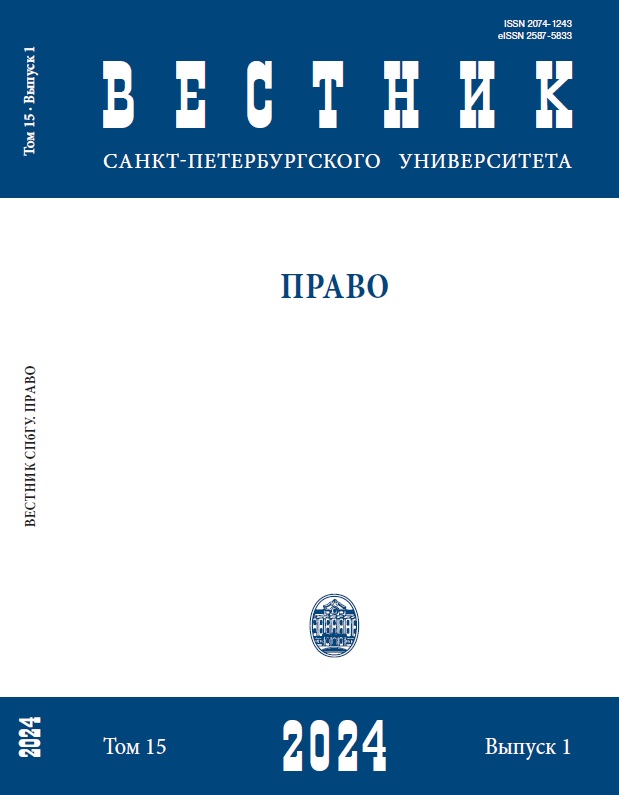The admissibility of testimony in criminal proceedings: Modern approach and development vectors
DOI:
https://doi.org/10.21638/spbu14.2024.102Abstract
In the article the most relevant aspects of the admissibility of the institution of testimony in modern Russian criminal proceedings are analyzed. The main part of the study includes four sections, the first of which criticizes legal definition of the very concept of the testimony of the victim, witness, suspect and accused, as information obtained solely as a result of their interrogation. It is proposed to consider the testimony of these participants as information obtained as a result of other investigative actions, not only such as confrontation, presentation for identification or verification of testimony on the spot, but also those that were not initially aimed at obtaining testimony: search, inspection, investigative experiment. The second section examines defects in the source of the interrogated's awareness that prevent the use of information from them in evidence: testimony based on rumors, guesses or an unnamed source, violating the secrecy of confession, attorney's or tax secrecy, reproducing unacceptable information or evaluating the falsity of other people's testimony by gestures or facial expressions. The third section indicates violations of the procedure for obtaining testimony, entailing their absolute inadmissibility: the use of torture, threats, the absence of participants provided for by law (defender, teacher, psychologist), leading questions. At the same time, it is proposed to distinguish between insignificant and avoidable violations that do not entail the inadmissibility of testimony. The fourth section examines the obstacles to the use in the conduct of the trial of those testimonies that were obtained earlier without violating the legal procedure. It is proposed to waive the ban on disclosing the previous testimony of the accused, obtained without the participation of a defender (when his participation was not legally mandatory), if they were not confirmed by the accused in court, as well as to soften the rules for the disclosure of testimony of non-present persons.
Keywords:
допустимость доказательств, показания обвиняемого, показания свидетеля, следственные действия, допрос, оглашение показаний, недопустимые показания
Downloads
References
Downloads
Published
How to Cite
Issue
Section
License
Articles of "Vestnik of Saint Petersburg University. Law" are open access distributed under the terms of the License Agreement with Saint Petersburg State University, which permits to the authors unrestricted distribution and self-archiving free of charge.






